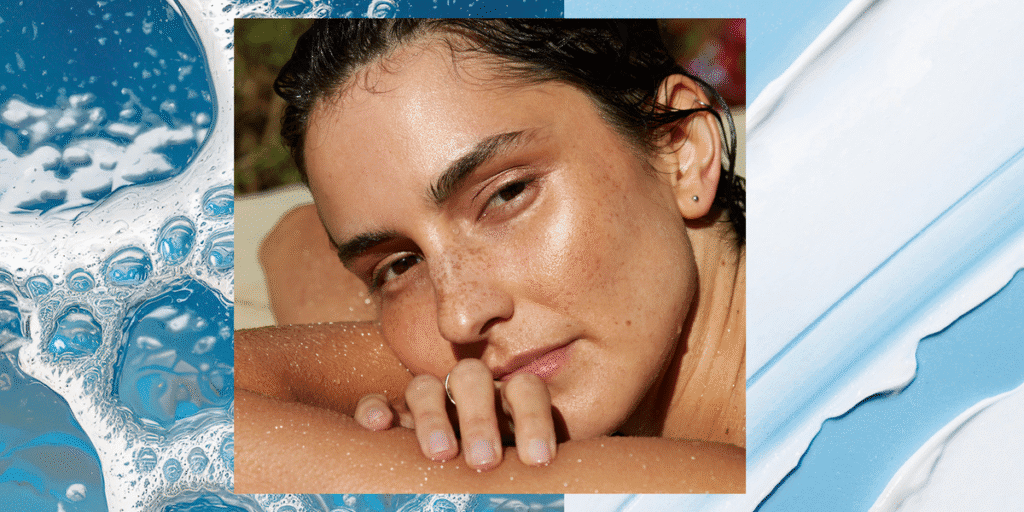Navigating Menopausal Skin Changes: What You Need to Know
As women transition into menopause, one persistent question arises: "What is happening to my skin?" This concern is common and understandable, especially since changes such as dryness, acne, wrinkles, and loss of volume often occur simultaneously.
Understanding Your Skin During Menopause
The Hormonal Roller Coaster
Menopause brings with it significant hormonal fluctuations. During perimenopause, the body experiences a decrease in estrogen levels alongside changes in testosterone production. These shifts can lead to unexpected skin issues:
- Dryness: A direct result of reduced estrogen, which diminishes moisture retention.
- Hormonal Acne: Contrary to the common belief that dryness reduces acne, hormonal imbalances can trigger cystic acne, especially around the jawline.
- Wrinkles and Sagging: As estrogen declines, collagen and elastin production also falls, leading to visible aging.
Experts like Dr. Ellen Marmur and Dr. Mona Gohara emphasize that understanding these changes is crucial for effective treatment and management.
The Process of Aging
Once menopause officially begins—marked by 12 consecutive months without a menstrual cycle—you may notice accelerated signs of aging. Studies indicate that collagen production can decrease by up to 30% in just five years following menopause. This leads to:
- Increased wrinkles and fine lines
- Dullness and uneven skin tone due to slower skin-cell turnover
- Laxity where skin begins to sag, particularly around the neck and jawline
Common Menopausal Skin Concerns and Solutions
1. Hormonal Acne
Unlike the acne of youth, hormonal acne involves deep, cystic lesions. To manage this condition effectively:
- Use Salicylic Acid: This beta-hydroxy acid penetrates oil-blocked pores, clearing out impurities.
- Incorporate Retinoids: These vitamin A derivatives encourage cell turnover and collagen production, helping clear breakouts over time.
- Consider Spironolactone: This prescription medication blocks hormones that trigger acne.
2. Fine Lines and Wrinkles
Key Strategies to Combat Aging:
- Retinoids: Essential for increasing collagen production, retinoids should be part of your nighttime routine.
- Peptides: If retinoids irritate your skin, look for gentler collagen-boosting peptides.
- Injectables: Treatments like Botox or fillers can smooth out deep lines and restore volume.
3. Dryness
Dryness can be exacerbated due to lower ceramide and hyaluronic acid levels in the skin barrier. To combat dryness:
- Double Moisturizing: Use products with hyaluronic acid and glycerin, then follow with emollients like ceramides or squalane.
- Look for Hydrating Creams: Products formulated for mature skin can help lock in moisture.
- Consider Hormone Therapy: Consult your gynecologist about options that may alleviate skin dryness along with other menopausal symptoms.
4. Hair Thinning
As estrogen levels diminish, many women experience hair thinning or loss. For effective management:
- Avoid Damage: Reduce the use of heat-styling tools and harsh chemical treatments.
- Use Minoxidil: This topical solution can promote hair growth by stimulating follicles.
Essential Products for Menopausal Skin Care
Investing in the right skincare products can significantly enhance your routine. Here are some expert-recommended solutions:
-
For Acne: La Roche-Posay Effaclar Salicylic Acid Acne Treatment – Effective for preventing breakouts and reducing pores.
-
For Wrinkles: Stripes Beauty Evening Wear Ectoine + Retinoid Firming Night Cream – Targets fine lines and promotes skin firmness.
-
For Dryness on the Face: Phosis Deep Hydration Restorative Cream – Infused with ceramides to combat dryness effectively.
-
For Dryness on the Body: Ultra Gentle Balm – Contains shea butter and hyaluronic acid for intense hydration.
- For Hair Loss: Viviscal Thickening Shampoo – Bayt to strengthen hair and promote thickness.
Conclusion
Navigating skin changes during menopause can be challenging. However, understanding the underlying hormonal shifts and employing the right strategies and products can lead you to a revitalized complexion. By addressing these issues head-on, you can embrace this stage of life with confidence and grace. For comprehensive guides and solutions, consider consulting with a dermatologist specializing in menopausal skin concerns.


